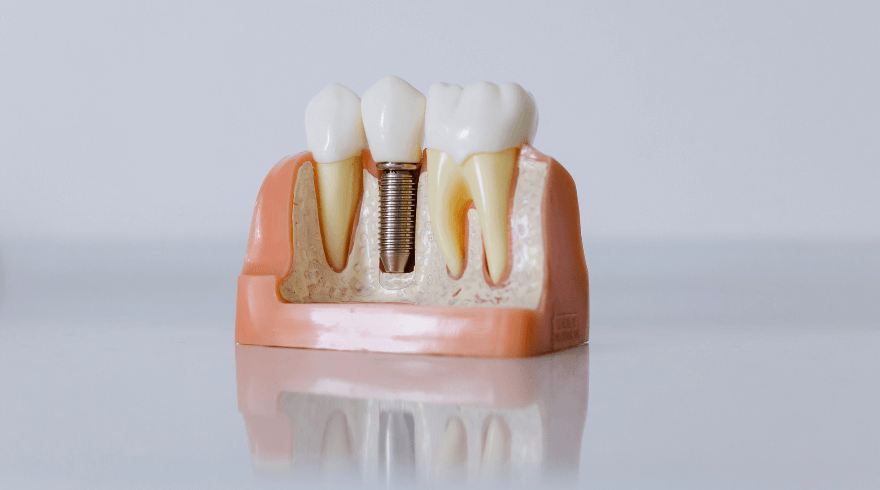Dental Implants: The Modern Solution for a Perfect Smile
- 25 August 2024

In the world of dental restoration, implants have emerged as a revolutionary solution for missing teeth. Offering a permanent, natural-looking alternative to dentures and bridges, dental implants have transformed the lives of millions. Let's dive into the world of dental implants and explore why they've become the gold standard in tooth replacement.
What Are Dental Implants?
Dental implants are artificial tooth roots, typically made of titanium, that are surgically placed into the jawbone. They serve as a sturdy base for mounting replacement teeth or bridges. The result is a restoration that looks, feels, and functions like natural teeth.
The Implant Process
The dental implant process usually involves several stages:
- Initial Consultation and Planning
- Implant Placement Surgery
- Osseointegration (Healing Period)
- Abutment Placement
- Crown Attachment
Types of Dental Implants
- Endosteal Implants
The most common type, placed directly into the jawbone. - Subperiosteal Implants
Placed under the gum but on or above the jawbone. Used for patients with insufficient bone height. - All-on-4 Implants
A technique where an entire arch of teeth is supported by just four implants.
Benefits of Dental Implants
- Natural Look and Feel: Implants are designed to blend with your natural teeth.
- Improved Speech: Unlike poorly fitted dentures, implants allow you to speak without worry.
- Comfort: They become part of you, eliminating discomfort of removable dentures.
- Easier Eating: Implants function like your own teeth, allowing you to eat your favorite foods with confidence.
- Durability: With proper care, implants can last a lifetime.
- Improved Oral Health: Unlike tooth-supported bridges, implants don't require reducing other teeth.
- Convenience: No need for messy adhesives to keep your teeth in place.
Candidacy for Dental Implants
While many people are good candidates for implants, certain factors can affect eligibility:
| Factor | Ideal Candidate |
|---|---|
| Oral Health | Healthy gums, no periodontal disease |
| Bone Density | Adequate bone to support the implant |
| Overall Health | Good general health, no conditions that impair healing |
| Smoking Habits | Non-smoker or willing to quit |
| Commitment | Willing to commit to good oral hygiene and regular dental visits |
Caring for Your Dental Implants
Proper care is crucial for the longevity of your implants:
- Practice good oral hygiene (brushing, flossing, and rinsing with antibacterial mouthwash)
- Avoid hard foods that could damage the crown
- Don't smoke or use tobacco products
- Visit your dentist regularly for check-ups and professional cleanings
- Avoid grinding or clenching your teeth (consider a night guard if necessary)
Cost Considerations
While dental implants can be more expensive upfront compared to other tooth replacement options, their durability and long-term benefits often make them a cost-effective choice in the long run. Many dental insurance plans are beginning to offer coverage for implants, and some practices offer financing options.
Conclusion
Dental implants represent a significant advancement in dental technology, offering a permanent and natural-looking solution for missing teeth. While the process requires time and investment, the benefits - including improved appearance, comfort, speech, and oral health - make implants an attractive option for many. If you're considering dental implants, consult with a qualified dental professional to determine if they're the right choice for your unique situation. With proper care, dental implants can provide a lifetime of smiles and improved quality of life.




